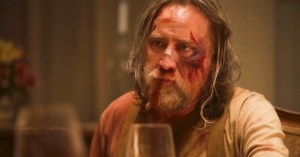20 Under-the-Radar Black Movies You Should Seek Out
Valerie Complex shines a spotlight on some of the quiet achievers and overlooked gems of Black cinema, from history-making recent debut feature Burning Cane to a showcase for Cicely Tyson's formidable talent.
by Valerie Complex | January 31, 2021
TAGGED AS: independent, indie, movies

(Photo by Paul Yee / © Oscilloscope Laboratories / courtesy Everett Collection)
It’s Black History Month, and to mark the occasion we’ve compiled a list of Black-centered films that have gone under-the-radar or which have been criminally underrated by the general public – and sometimes the critics.
Many Black film lovers will be familiar with most of the movies on this list, but they’re not always among the most celebrated Black stories or movies from Black creators. And broadly, far too many Black films are dismissed for one reason or another – especially when the stars are unrecognizable.
When you dig into the list, you’ll see documentaries, drama, comedy, and musical titles from the 1940s to 2020 that we consider true hidden gems. Add them to your watch list, stat!
What do you think of this list? What did we miss? Be sure to comment with a film you’ve seen that is under-the-radar or overlooked that you’d like movie fans to know about.
 91%
91%
Summer (Zoe Renee) is a carefree 17-year-old Black girl who loves hanging out with her friends and dancing. She has a close relationship with her famed meteorologist mother, Jade (Simone Missick), but their relationship shifts when Jade converts to Islam – and the change prompts Summer to reevaluate her identity and her path forward. Nijla Mu’min writes and directs this beautiful film, which features rich, three-dimensional characters who exist at the intersection of Blackness and religion. The Fresh family drama highlights the insecurities that come with change and the challenges of faith.
 88%
88%
In Princess of the Row, Alicia Willis (Tayler Buck) leaves foster care to search for her father (Edi Gathegi), who lives on skid row and has PTSD. Despite the impoverished circumstances, Alicia is determined to stay out of the system and keep her family together. Director Van Maximilian Carlson and co-writer A Shawn Austin create an authentic viewing experience that will leave audiences cheering for the leads, and one that has been hailed as a harrowing drama about two demographics often kept on the margin: foster care kids and the homeless.
 93%
93%
The Certified Fresh Premature follows a high school senior who gets hit with a heavy dose of reality. Seventeen-year-old poet Ayanna (Zora Howard) engages in a summer romance with the mysterious music producer Isiah (Joshua Boone), immersing herself in the relationship to the point where she loses her sense of self; after an unexpected pregnancy, she realizes she needs to make adult decisions before leaving home for college. Director Rashaad Ernesto Green and his Premature co-writer and star, Howard, craft a modern-day Harlem romantic drama where the characters are fully actualized and the narrative free of racial stereotypes.
 95%
95%
As America enters an era where online sex work has become increasingly unsafe, movies like Jezebel are ushering in a new generation of genre films centered on sex workers taking control of their careers. The film is based on director Numa Perrier’s life as a sex worker – she also co-stars – who battled sexism and racism to achieve financial success. It’s important to understand this business from the Black female perspective because it’s a subject that is rarely addressed with authenticity and genuine, nuanced understanding of the industry and the lives of those who work within it.
 98%
98%
Actress Jordana Spiro made a smashing Sundance debut as a director with her first feature-length movie, Night Comes On. This is where many audience members first discovered the talented Dominique Fishback – transfixing in this month’s Judas and the Black Messiah – who plays Angel, a young woman who emerges from juvenile detention with a mission: to find her 10-year-old sister, and avenge her mother’s death. The film was released to DVD in September of 2018, with very little fanfare, which is unfortunate because it is magnificently performed and directed with a sincerity and heart that captures the beauty of Black sisterhood and the faults of a broken justice system. Critics took huge notice – the movie is Certified Fresh at 98% on the Tomatometer – and we hope wider audiences start to soon, too.
 96%
96%
Anna Rose Holmer‘s coming-of-age character study, The Fits, stands out because it tells the kind of unique story we hadn’t seen on screen before its release – or since. Toni (first-time actress Royalty Hightower) is a tom-boy who follows in her brother’s footsteps and trains in boxing before discovering a new passion when she auditions for the school dance troupe. As a sudden outbreak of fainting spells sweeps through the school, Toni begins to question her identity and need to fit in.
 97%
97%
With Academy Award nominations and hearty public endorsements from the likes of Trevor Noah, Hale County has bizarrely still managed to fly under many movie-lovers’ radars. Filmed over a five-year period, this documentary chronicles the daily lives of several members of the Hale County, Alabama community as they work, go to school, raise children, and move into and out of each other’s lives. Aided by stunning cinematography, the film shatters expectations about Blackness in the South and shines a nuanced light on an amazing and tight-knit community.
 79%
79%
This Sundance favorite brings the audience into the life and mind of sensitive neighborhood kid Mouse (Jahi Di’Allo Winston), who wants to be a part of the Midnight Clique dirt bike group. Bike culture is a big part of Baltimore’s Black community, but one that had rarely been explored before director Angel Manuel Soto‘s acclaimed film. That’s part of why Charm City Kings is worth seeking out: Not only is it an impressively told coming-of-age story, but an intimate look at a collective where friends become family and bond over their love of summertime riding.
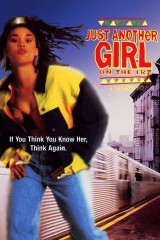
 69%
69%
Chantel Mitchell (Ariyan A. Johnson) is a 17-year-old high school junior from Brooklyn, New York, who’s determined to become a doctor and make it out at all costs. However, her plans are derailed when her boyfriend Tyrone (Kevin Thigpen) gets her pregnant; confused and filled with anxiety, Chantel grapples with the thought of becoming another teen pregnancy statistic. But Just Another Girl on the I.R.T is not just another pregnancy story. Writer and director Leslie Harris addresses the HIV/AIDS crisis, racism, and problems in the education system in a hopeful and not heavy-handed way, painting a vivid picture of life in New York City in the early 1990s as she does.

 90%
90%
An adaptation of the novel of the same name by author Ernest J. Gaines, Autobiography of Miss Jane Pittman stars the legendary Cicely Tyson as Pittman, a 110-year-old former slave who lives in the South, and recounts her life from birth on a slave plantation to the Civil Rights era of the 1960s. A Black cinema staple that often gets lost in the shadows of the landmark Roots miniseries, which premiered on television six years later – and also featured Tyson – director John Korty’s film is a moving must-see.
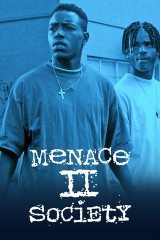
 84%
84%
Cold-blooded is the best word to describe the Hughes brothers’ Menace II Society. Caine Lawson (Tyrin Turner) grew up surrounded by gang culture but doesn’t want to live that life forever; his best friend, O-Dog (Larenz Tate), lives hard and fast and doesn’t care if he lives or dies. His support system consists of his grandmother (Marilyn Coleman), a caring teacher Mr. Butler (Charles S. Dutton), and his girlfriend, Ronnie (Jada Pinkett Smith), all of whom encourage him to move away from the projects; but a series of tragic events will make his escape difficult. The film does not hold back in showing the desperation and brutality that hopelessness and poverty can breed.
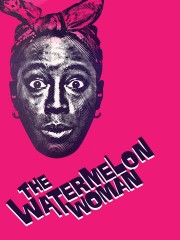
 92%
92%
Watermelon Woman is an piece of lesbian cinema that is underrated by some and under-seen by many. Cheryl Dunye crafts a story that tackles several themes of racism, sexism, and identity, placing herself in the center of the narrative as a filmmaker searching for the actress who was dubbed the Watermelon Woman. The quest leads Cheryl to explore archival sources that exclude or ignore Black lesbians working in Hollywood, all as she deals with love and New York life in the mid-1990s.
 94%
94%
Daughters of the Dust kicks traditional storytelling to the, well, dust, and sees director Julie Dash brandishing her own unique style. The film tracks the traditions, food, and livelihoods of the Gullah community members who reside off Georgia’s coast: Young Haagar (Kaycee Moore) wants to move to the mainland away from a tradition-bound family, as Yellow Mary (Barbara-O) returns from the mainland with her female lover. Cultures and lifestyles collide in this beautifully poetic film that preaches the importance of holding on to history and traditions – no matter where you are.
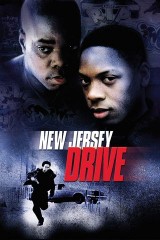
 62%
62%
New Jersey Drive came at the tail end of a cinematic era of hood classics – New Jack City (1991), Boyz n the Hood (1991), Juice (1992), Menace II Society (1993), and Above the Rim (1994) – and largely failed to make an impact. Those movies jumped back and forth between New York and California, but director Nick Gomez wanted New Jersey in on the action. With little education and few job opportunities, Newark friends Jason (Sharron Corley) and friend Midget (Gabriel Casseus) begin jacking cars and trading them in for cash. It’s all fun and games until Midget starts to think he’s untouchable. Now Jason and his friend find themselves on the wrong side of the law while making dangerous enemies in their neighborhood.
 100%
100%
Produced by John Legend, with appearances from Oscar winners Denzel Washington and Viola Davis, the documentary Giving Voice highlights the lives and talents of high schoolers of color across the U.S. who’ve taken a deep interest in playwright August Wilson’s work. (Washington and Davis starred in Washington’s adaptation of Wilson’s Fences.) The students are all competing in the national August Wilson monologue competition, and not only do Wilson’s words give them the confidence to pursue their dreams of becoming actors on stage and screen, but they learn valuable lessons from his text that they can apply to their lives.
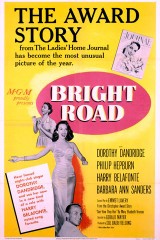
 - -
- -
1954’s Carmen Jones is a landmark of Black cinema: It solidified Harry Belafonte and Dorothy Dandridge as Hollywood stars. But many don’t know that their first film together was the hopeful Bright Road, which was released a year before their classic second outing together. In the movie, Jane Richards (Dandrige) is a teacher who notices one of her students, C.T. Young (Phillip Hepburn), is more withdrawn than his classmates. Richards works closely with him to improve his grades, but they tank when his best friend dies of pneumonia; eventually C.T. comes out of his funk and begins to engage in class until summer vacation. Bright Road stands out in Belafonte and Dandrige’s filmographies for allowing the actors to display their talents without being forced to play overtly sexual, or to conform to stereotypes.
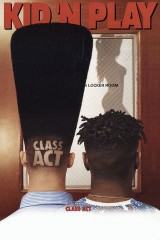
 17%
17%
For some, this comedy is considered the Trading Places of the ’90s with Duncan Pinderhughes (Christopher “Kid” Reid), a dull straight-A student with no social life, and Blade Brown (Christopher “Play” Martin), the school bully, swapping permanent school records. They agree to keep things that way as Duncan gets good grades for Blade, and Blade teaches Duncan how to be cool. However, they both start to realize that their new lives aren’t what they expected. After the success of House Party and three sequels, rappers Kid (Reid) and Play ( Martin ) wanted to branch out in a different direction, and Class Act was born. It may not have received the same hype as the House Party movies – and is fairly Rotten according to critics – but it’s a hilarious movie cherished by its fans and well worth tracking down.
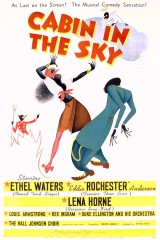
 81%
81%
Life, death, and redemption are the themes of the 1943 musical Cabin in the Sky. Little Joe Jackson (Eddie ‘Rochester’ Anderson) gets into a fight and dies; waking up in Purgatory, he learns he’s getting sent back to Earth to prove he belongs in Heaven, or he’s going straight to Hell. He awakens, remembering nothing, and falls back into his old ways, including treating his wife Petunia (Ethel Waters) like crap. While Joe is trying to improve, an angel known as the General (Kenneth Spencer) and the devil’s son, Lucifer Jr. (Rex Ingram), fight for his soul. It’s, well, a lot, but full of great musical numbers and performances from Duke Ellington and Lena Horne. With that level of talent on screen, it’s little wonder the film was selected for preservation in the National Film Registry by the Library of Congress.
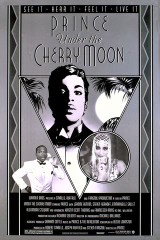
 38%
38%
Prince fans and movie fans alike love the musician’s first feature, Purple Rain – the movie features some of the most memorable scenes of 1980s cinema and best songs from his discography. Yet no one seems to talk about Prince’s second feature film, Under the Cherry Moon. Lighter in tone and shot in black-and-white, the film follows gigolos Christopher Tracy (Prince) and his cousin, Tricky (Jerome Benton), who live on the French Riviera and thrive by swindling wealthy French women out of money. After Christopher meets the 20-year-old heiress Mary Sharon (Kristin Scott Thomas in her feature film debut), and falls in love, things get complicated. This film is a must-watch, with Prince – who also directs – delivering a hilarious, camp, and tragicomic treat.
 91%
91%
Nineteen-year-old Phillip Youmans’ first feature film, Burning Cane, follows Helen Wayne (Karen Kaia Livers), a deeply religious woman who struggles to reconcile her Protestant faith with the secret transgressions of her abusive alcoholic son Daniel (Dominique McClellan). Set in rural Louisiana, the movie explores toxic masculinity and the complicated role religion can play in the Black community. Youmans is the youngest director to ever have a film in competition at the Tribeca Film Festival, and actually won the Tribeca founders award for best narrative feature and and the award for best cinematography. At the same time, Wendell Pierce – fantastic as Reverend Tillman – went on to win the festival’s award for best actor.
Follow writer Valerie Complex on Twitter: @ValerieComplex. Read her reviews on Rotten Tomatoes here.




